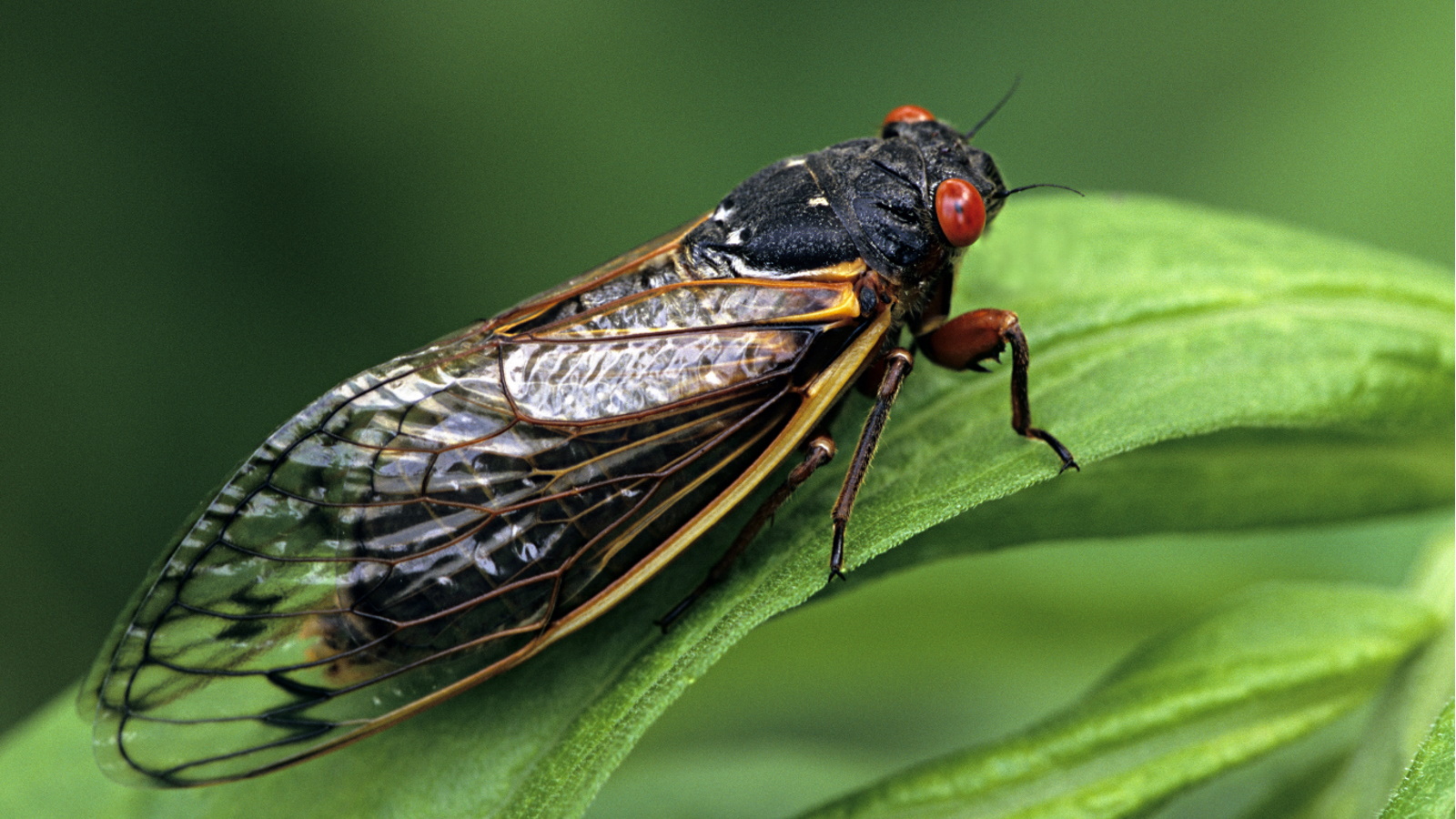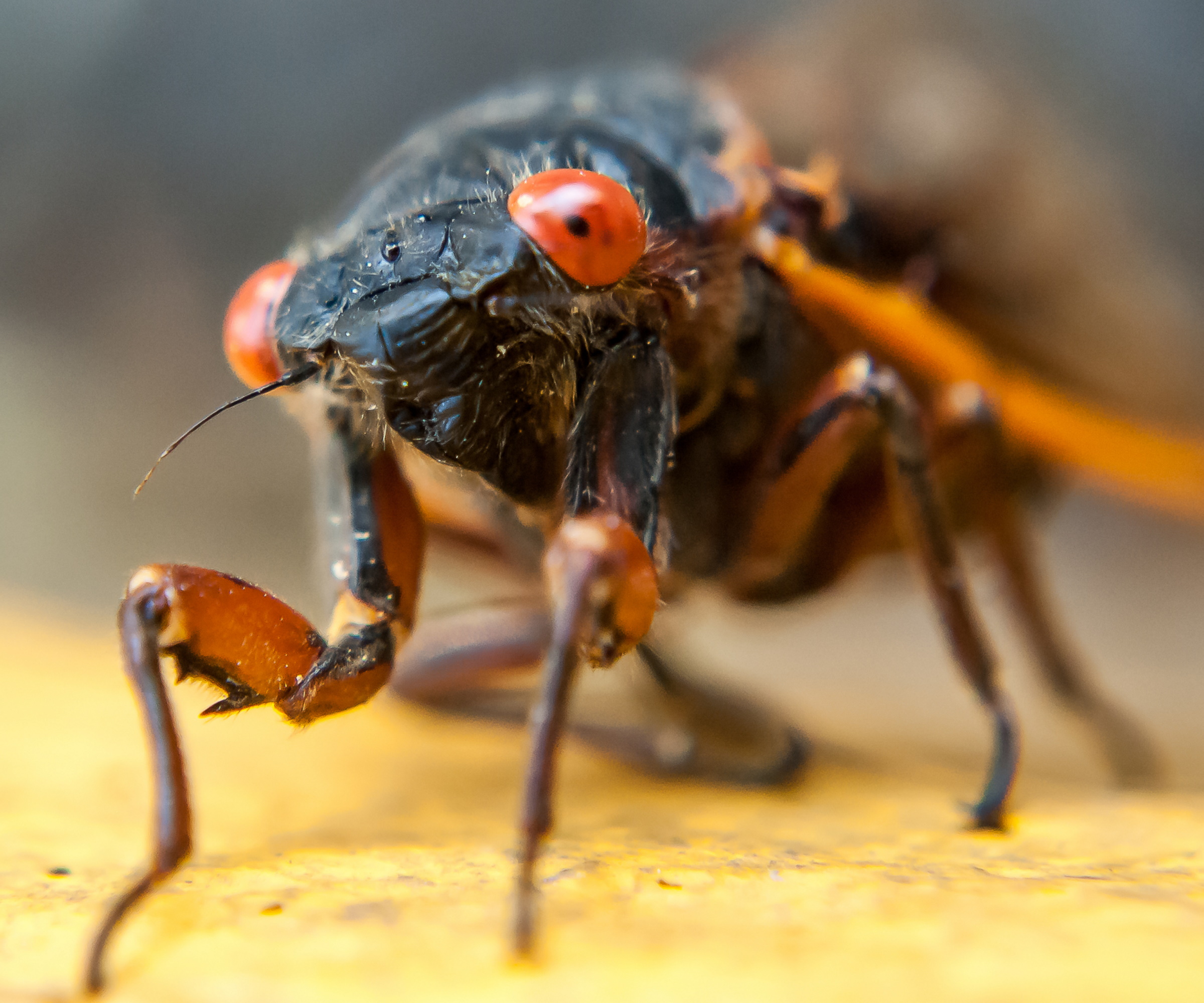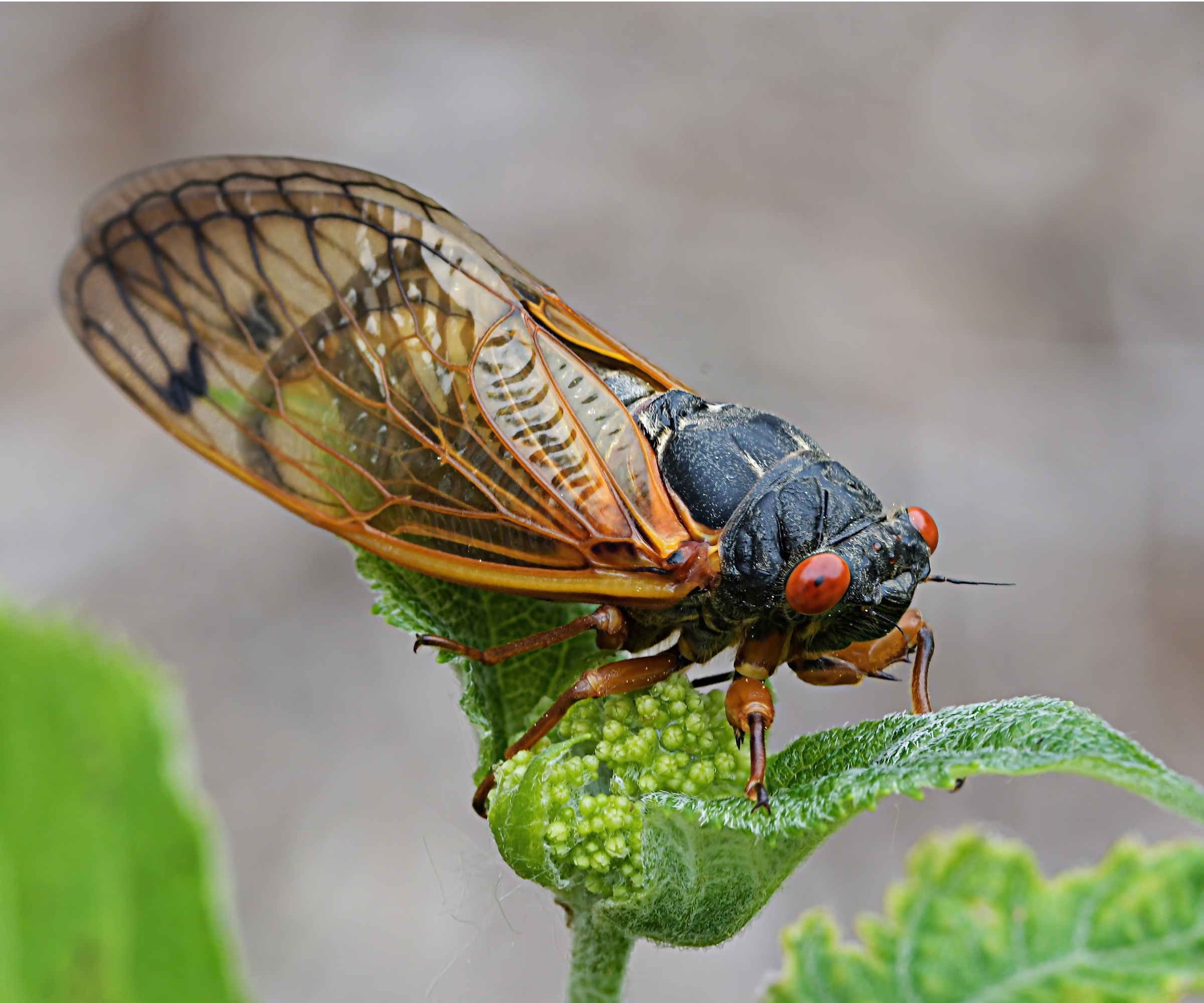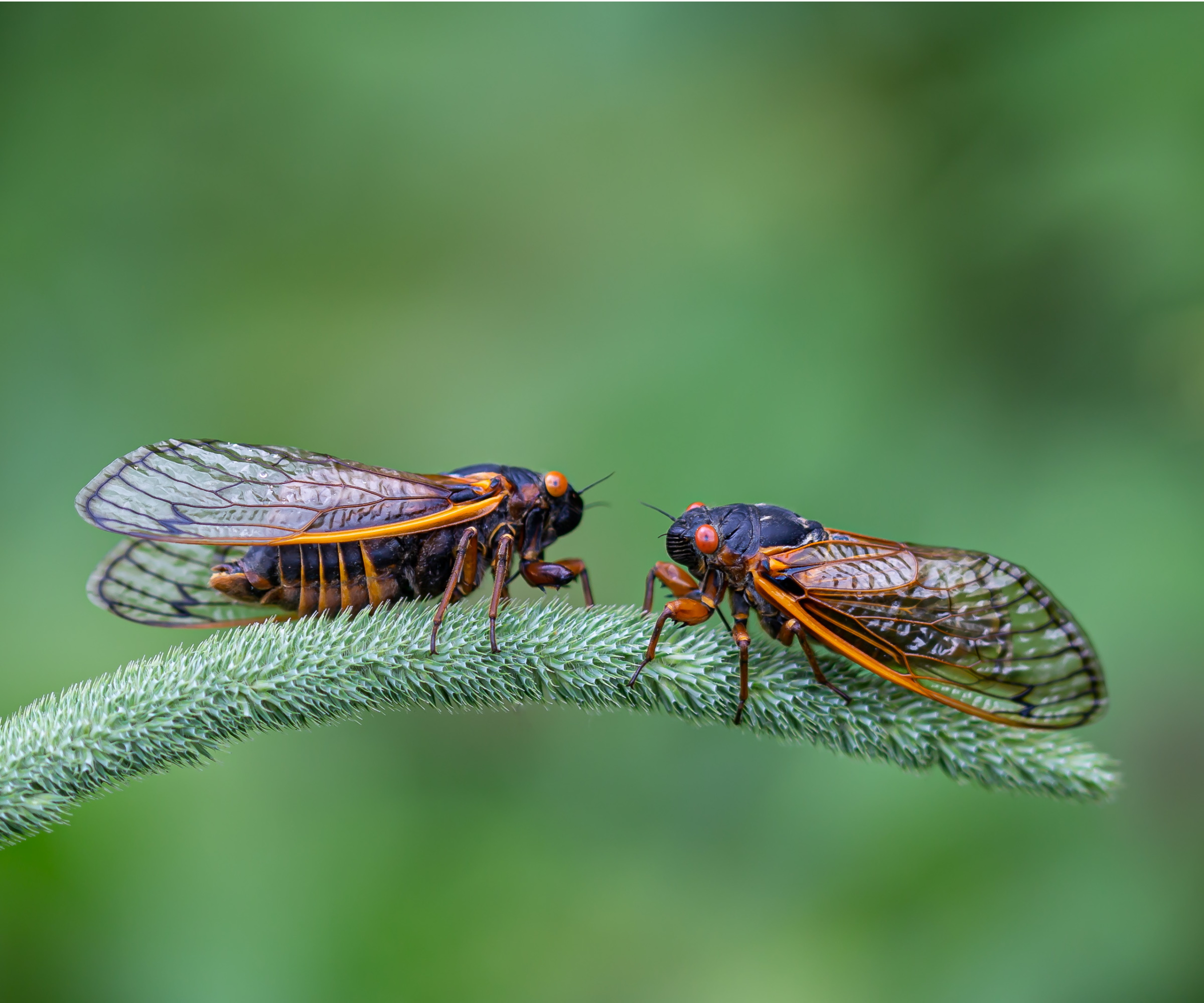
Two groups of cicadas, members of the order Hemiptera (or insects such as water bugs), will co-emerge this April for the first time since 1803, a scientific study has revealed.
The report by the University of Connecticut shows the infestation will be prominent in the Midwest and Southeast of the US, from Maryland to Oklahoma and Illinois to Alabama. It states these areas will see trillions of adult cicadas emerge, although not all will be in the same place at the same time.
Cicadas are large insects, part of the Cicadoidea superfamily, known for their loud buzzing and whines. They live in woody habitats, such as tree trunks and shrubs. For the first time in over a century, the 13-year cicada, Brood XIX, and the 17-year cicada, Brook XIII, will co-emerge in the same year.
'Cicadas are plant-eating insects related to leafhoppers, treehoppers, and spittle bugs,' says entomologist David Price. 'The adults have sucking mouthparts and are not harmful to humans and pets. The nymphs (juvenile) cicadas feed primarily on tree roots.'

How cicadas can affect outdoor plants

The review states that cicadas are not generally thought to be insect pests and there is no reason to use pesticides on them. Although, gardeners are warned that they can cause damage to garden plants.
'While the males are the noisemakers, the females are the ones that damage fresh stems on bushes and trees, preferring to lay their newly formed offspring a few days after mating in succulent, fresh growth in stems that are less than half inch wide,' says entomologist Dr Tracy Ellis.
'The female uses her strong ovipositor (egg-laying appendage) to slice along the protective outer cuticle and bark of the stem and deposit eggs into the moist growing tissue,' she adds.
It is this act of egg-laying and feeding of newly emerged cicada nymphs that weakens the stem of plants, causing branches to bend and die back.
Deciduous trees will be most susceptible to this damage, including maple, oak and birch.
How to protect garden plants from cicadas

It is not recommended to use pesticides on cicadas in your backyard, however, there are a few things you can do to protect your plants from any damage they might cause. Entomologist David Price recommends:
- Protect young saplings, shrubs and other vulnerable plants with mesh material.
- Avoid planting new trees before and during the cicada infestation.
- Don't attempt to eliminate cicadas because they are a natural part of the ecosystem.
You can find handy tree protectors online, like this mesh tree bark protector from Amazon.
If you live in the Midwest and Southeast, you can expect to see large numbers of cicadas this spring and it's important to be aware of how they can affect your plants. You may find this article on trap plants interesting for ideas on protecting plants from pests.







